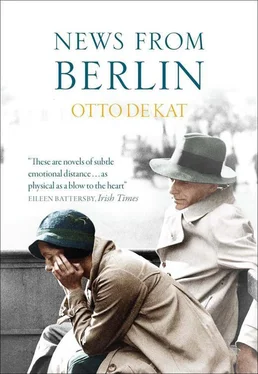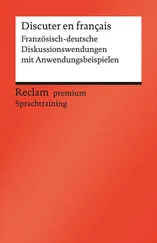Kate caught sight of Matteous on the pavement of Barkston Gardens, coming towards her with the uncertain gait of a fugitive. She felt a pang of misgiving. It was the gait of someone who might retreat at any moment, double back, go home, in any case vanish from there.
“Mattteous!” She waved. Matteous looked up, and even at that distance she was struck by the whites of his eyes. The black jacket of his uniform suited him.
“I’ll be right down to let you in.”
When he entered without his satchel, she knew something was wrong. She had known from the moment she saw him. He had come to say that he was leaving.
During the few seconds that he stood in her room, not knowing how to begin and what to do with his hands, it became clear to her how dearly she loved him, with a kind of love unlike what she felt for anybody else. Not the possessive kind, nothing to do with jealousy or resentment or self-pity. Matteous had dismantled all her defences, she felt laid bare like an archaeologist’s find. It was beyond comprehension.
She wanted to tell him about Operation Barbarossa, had to discuss it with him before it was too late, ask him if he thought she was right to go to the Ministry, even if her husband said it would put Emma in danger. Which was just an idea he had got in his head, because who on earth would suspect Emma? You do think I’m right, don’t you Matteous?
But she forgot to ask him, she forgot it all. She heard only one thing.
“I cannot live in this city, Miss Kate. I have tried for your sake, but it’s no good.”
Her eyes caught on a button hanging by a thread from his jacket, a tarnished brass button, of the kind she had seen in her mother’s button box.
No tears, please. Very briefly, she gripped the back of a chair. She had to pull herself together, suggest making tea, or coffee. Coffee, of course. Africans like their coffee black, with heaps of sugar, he had said to her one day. Come and sit with me, Matteous, at the table where we always sit, face to face, paper and ink at hand, a copybook, two pens. Museum exhibits from the past.
“Won’t you sit down?”
He complied with an air of signing his death warrant. Sat ramrod-straight, mute and motionless.
Gulls circled above the small park, their shrieks echoing in the room.
*
In Rome the doors to their balcony had been open practically all the time. Roy often sat there to write or read, quite undisturbed by the bustle of the Corso or the cries of Italian street folk.
“Tomorrow I’ll be off to Milan for that Forum conference. Afterwards, why don’t we go to Capri? It’s ages since we’ve been there, and Marina Piccola will be wonderfully quiet at this time of year. I could do with a break from all the brushing and scrubbing. And how about having a few babies?”
Said laughingly. Castles in the air. Kate had lifted the hem of her skirt and perched herself on his knee, asking in a mock-earnest tone: “Doesn’t having babies give you varicose veins?”
Matteous and Roy, the dream of return, the return of the dream.
She asked Matteous when he would leave and how he would travel. He did not know. All he knew was that he would jump in front of a bus if he stayed. This time she made no attempt to persuade him otherwise, unlike in the past. She could hear his sad determination, and his concern for her.
He asked how they could stay in touch, and repeated what he had said about owing his life to her. Would she like to come to Africa one day? Torn between opposing nostalgias, already. He would not go back to being a soldier, nor would he go down the mines again. He would find a rubber plantation, perhaps. Work in the forest, far away from barracks and mine shafts. Become a rubber tapper.
Kate felt the rough sleeve of the uniform against her cheek, opened her eyes, and found herself slumped in the arms of the railway man lowering her gently to the ground. People came running, cries of dottore, dottore! , a neighbour rushed forward with a jug of water and a towel. She saw the distraught face of the Italian, the unwilling messenger of doom, the upright citizen doing his duty by sowing death and destruction. The brass buttons on his uniform caught her eye, as they had in a photograph in the accident dossier. Tokens of impending loss.
She faced Matteous, who noticed how pale she was.
“Shall I get you a glass of water?”
Kate shook her head, she did not need anything, all she wanted was to sit and wait for the reflux of the tide that had been washing over her for days: the hours with Roy and their great life together, which she had buried and banished, and which had started anew in the dark shape of Matteous.
Marina Piccola in May, which you could reach on foot over the newly constructed Via Krupp, a miraculous road with tier upon tier of hairpin bends seeming to spill from the cliffs. The Faraglioni rose high from the sea, three great spurs of black rock with seagulls wheeling above. Roy and she had seen them at close quarters from a dinghy. “Kate-ate-ate!” Roy shouted upwards, outshouting the gulls. The sound came back again and again, louder each time.
Capri in early spring, almost empty of tourists. Roy supervised excavations, and she wandered around the island, or took a boat tour to the blue grotto. Roy needed only to thrust a stick in the soil to be transported to Antiquity. They had stayed for several weeks at a stretch. Kate knew the island like the back of her hand, from the Emperor Tiberius’s Villa Jovis up to Monte Barbarossa.
She told Matteous of her fears for the impending invasion. She hid nothing, relating all Oscar’s objections and describing his concerns over Emma’s safety. She explained her own reservations, and that she had overcome them, and that she had decided to go to the authorities before it was too late.
Matteous shook his head. “Don’t do it, Miss Kate, don’t do it.”
She had been so confident of his approval. He knew the meaning of war, he would tell her she should go, would accompany her even. But what he said was: “You must think of your daughter, Miss.”
Perhaps she had spoken too quickly for him to understand, she would explain all over again, and would continue explaining until he finally said yes. But again he said no. No, no, she was not to go there, she was not to betray her daughter. They would find out, and there was nothing she or anybody else could do about the war, which was a massive force taking possession of the world, of limitless momentum and impossible to stop. Matteous expressed it otherwise, but that was what she understood him to say. He had seen the war and been unable to escape. There was no escape.
Of the funeral she had no memory, none at all but for one thing. Among the scores of mourners at the Cimitero degli Inglesi in Rome, she had seen her father holding hands with a little girl in a black hat. Who she was she did not know – a niece? the daughter of a friend? – yet it seemed to her that the child was leading him by the hand rather than the other way round. She saw herself standing at the graveside while the coffin was lowered, her eyes fixed on her mute father and the little girl in the hat. That was the only image that had stayed with her.
“Matteous, all those people will get shot and burned and blown to smithereens, they’ll crush everything in their path with their tanks. They have done it before and they will do it again. We must give all those innocent folk some warning.”
Matteous looked away, his hand on his heart. He was no longer listening. She was afraid he would leave without a further word. But he moved his hand from his heart to her arm, touched her wrist, and slipped her a folded scrap of paper.
*
Darkness fell slowly, the street lamps of Barkston Gardens remaining unlit. Time for blackout, time to stand up and shut the windows and the doors to the balcony. It was as though she had fallen ill. Her head was ablaze, she could feel the fever rising, her feet were as cold as ice. Time for blackout.
Читать дальше












